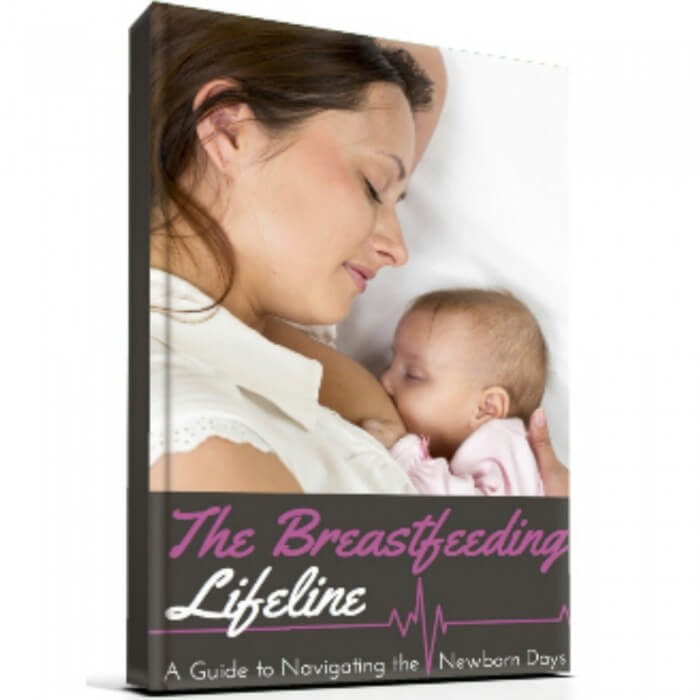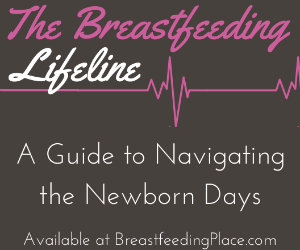 Women can have a variety of breastfeeding problems, low milk supply being one of them. This can be the hardest part of nursing in my opinion. It is so hard as a new mom to simply trust your body to do what it was designed to do!
Women can have a variety of breastfeeding problems, low milk supply being one of them. This can be the hardest part of nursing in my opinion. It is so hard as a new mom to simply trust your body to do what it was designed to do!
Most moms have no issues with supply whatsoever, even if they fear they might. Why so much concern about supply? How do you know if you have low milk supply?
These are not indicators of Low Milk Supply
- Growth spurts early on can be a blow to mom’s confidence in her body. Baby may always seem hungry and may nurse practically around the clock without ever seeming satisfied. Trust your body. This behavior is normal in newborns.
- Breasts feel soft. Our breasts are factories, not warehouses. There is always milk available even if it doesn’t seem like it. By around 4 months, mom’s supply will regulate and mom will not feel engorged much anymore. It is at this point that many moms fear they are losing their milk. The truth is, mom just no longer has an oversupply.
- Baby is nursing for shorter amounts of time. As babies get older, they become much more efficient. My little man can finish a full nursing session—both sides—in 10 minutes or less.
- Mom isn’t able to pump as much. Pumping is never a good indicator of supply. If you pump until you feel like you have drained your breast, baby will still be able to get quite a bit of milk out. Pumps, even the hospital-grade ones, just aren’t as efficient as baby.
- Baby drinks a big bottle after nursing. Babies need to suck. When liquid hits their tongue, they swallow. It’s a reflex. When a bottle is in baby’s mouth, the drips of milk trigger this reflex and before you know it, the bottle is empty even if baby wasn’t hungry.
How to Tell if You Aren’t Producing Enough Milk
Now, how can we be sure baby is getting enough? So many doctors are quick to suggest adding formula so at least part of the feedings can be measured. It is more scientific to have everything precise. Breastfeeding just doesn’t fit that “scientific” mold. Even still, there are very good ways to tell if baby is getting enough. Please be sure baby is healthy and not dehydrated before doing anything else.
- Diaper count. Expect one wet diaper for day of age (1 diaper on day 1, 2 on day 2, etc.) for the first week. After that, 5-6+ quite wet diapers per day is normal. Urine should be pale in color and mild smelling. If diaper count dips, try adding a feeding or two per day to see if it improves. As you are adding feedings, consult your lactation consultant.
- Swallowing. You should be able to see/hear baby swallow while latched. Swallowing shows the difference between nursing for comfort and nursing for food. Watching/listening for swallowing will help mom know how long baby is actually eating.
- Weight gain. It is perfectly normal for babies to lose up to 10% of their birth weight at first. If mom was given a lot of fluids before delivery, it may be normal for baby to lose a little more. Baby should regain that weight by 2 weeks. After that, baby should be gaining 5-7 oz. per week for the first 4 months.
- Milk transfer. If you are concerned about supply, you can rent a very sensitive baby scale. Remember that weights can differ by even a few pounds between scales, so don’t compare a home weight to a doctor weight. Weigh baby before a feeding and then directly after a feeding to see how many ounces he is transferring. You should do this for several feedings since babies do not always eat as much each time.

What to do about Breastfeeding Problems: Low Milk Supply
Now, I know how hard low milk supply problems can be. I had supply issues. Mine were caused by an undiagnosed thyroid issue that took 6 months to figure out. My lactation consultant and doctor worked together to help get baby to gain weight again and to get my supply back up. We needed to supplement with quite a bit of formula. Baby was only gaining an ounce per week for a few weeks. If you fear your low milk supply is indeed an issue, here are a few tips:
- Call your lactation consultant. A good LC is worth her weight in gold. Look for an IBCLC if possible: Internationally Board Certified Lactation Consultant. WIC offices have breastfeeding peer counselors who are often working toward their IBCLC certification. Contact your local La Leche League for help with contacting a consultant.
- Make sure you are getting enough calories and fluids. I had absolutely no appetite after giving birth so getting enough to eat was a daily struggle.
- Add oatmeal to your diet. Oatmeal helps milk production. Oatmeal cookies can work as well (though not as well as regular oatmeal).
- Try drinking lactation teas. I used Mother’s Milk Tea and had some great success but learned that I was allergic to some of the herbs in the tea.
Increase your fiber intake. Fiber was my biggest helper. I noticed a supply increase right away.
- Get plenty of rest. (Haha! I know – that’s a funny one).
- Pump for 5-10 minutes after each feeding. You won’t get much yield, but since milk production is supply and demand, the pump adds demand to increase your supply.
- Don’t try to schedule feedings. If mom nurses baby on demand, her supply will be sufficiently stimulated.
- Consider supplements. Fenugreek can be very beneficial as can other supplements like brewers yeast. Some essential oils can also help with low milk supply.
- Take a vacation—a nursing vacation. Spend a day or two in bed just nursing. Get as much skin to skin contact as possible. Let someone else bring you food and drinks. Just rest and nurse.
Breastfeeding can be hard at times. Our society isn’t terribly supportive of or knowledgeable about breastfeeding. Sadly, the majority of doctors are under-informed. As you work to improve milk supply, be sure to look for the possible root cause.







Oh I just love how well you explained perceived low milk supply and aids to help build milk supply! As a WIC Peer Counselor this post helped remind me about oatmeal and fiber. I think I will note your website as a source of good information to my breastfeeding moms. Thank you again!
Please stop perpetuating the myth that “baby can always get out more than a pump can.” Guess what? It’s not true. I rented a scale that measured to a tenth of an ounce and my pumps (both the Medela Symphony and Ameda Purely Yours) could always get out more than my perfectly latched baby. Breastfeeding is stressful enough. Let’s not add to it by making a mother feel guilty for pumping rather than nursing. I know I would have preferred nursing but when your baby doesn’t EVER get satisfied unless you pump and combine that with formula you must ignore old wives tales such as the one your article perpetuates.
The point of the post didn’t seem to be to make anyone feel guilty for pumping. There are a number of posts on this site that aim to help women who must pump in order to give their babies breast milk. All of the authors on this site applaud women who spend the time pumping in order to feed their baby.
If I’m not mistaken, the point was to simply let moms know that what they are getting from the pump is not an accurate indication of what their babies are getting. Typically (and this has been observed and documented by many women, NOT an old wives tale) women’s bodies respond better to the suck of a baby. Our bodies were designed to respond to a baby and not to a machine, as such women typically let down more milk for their babies than they will for a machine. Notice I also say typically this is the case. Because of course, there can always be differences in individuals. It sounds like you are one such difference.
We’re so glad you’ve been able to breastfeed your baby via the pump and wish you continued success until the time you both decide it’s time to wean.
I’m wondering if there is a point to pumping. I get 15-30 ml per pump if I am very lucky. I’ll get 45 if I went a couple of days without pumping. No matter how hard I tried, with a hospital-grade pump, the more I pumped, the less I got. I was unable to breastfeed, really, until we came home from the hospital. I tried oats, fenugreek, Reglan, massage, and several other tips, but nothing has worked. One site even suggested that one ounce was a normal pump yield and anything more was oversupply. If that’s normal, how can anyone work and feed their child without resorting to supplementing? It’s impossible. They say just to pump more often. That’s easy to say if you can get an ounce out any old time you want. Now my daughter is on a nursing strike, so I’m bottle feeding exclusively. Everyone tells me to just give up, but I don’t want to. Now I find out it could be a hormone imbalance, possibly also the cause of my fibromyalgia and chronic fatigue. Why do lactation specialists and doctors not suggest this possibility, especially if they know you have a chronic condition?